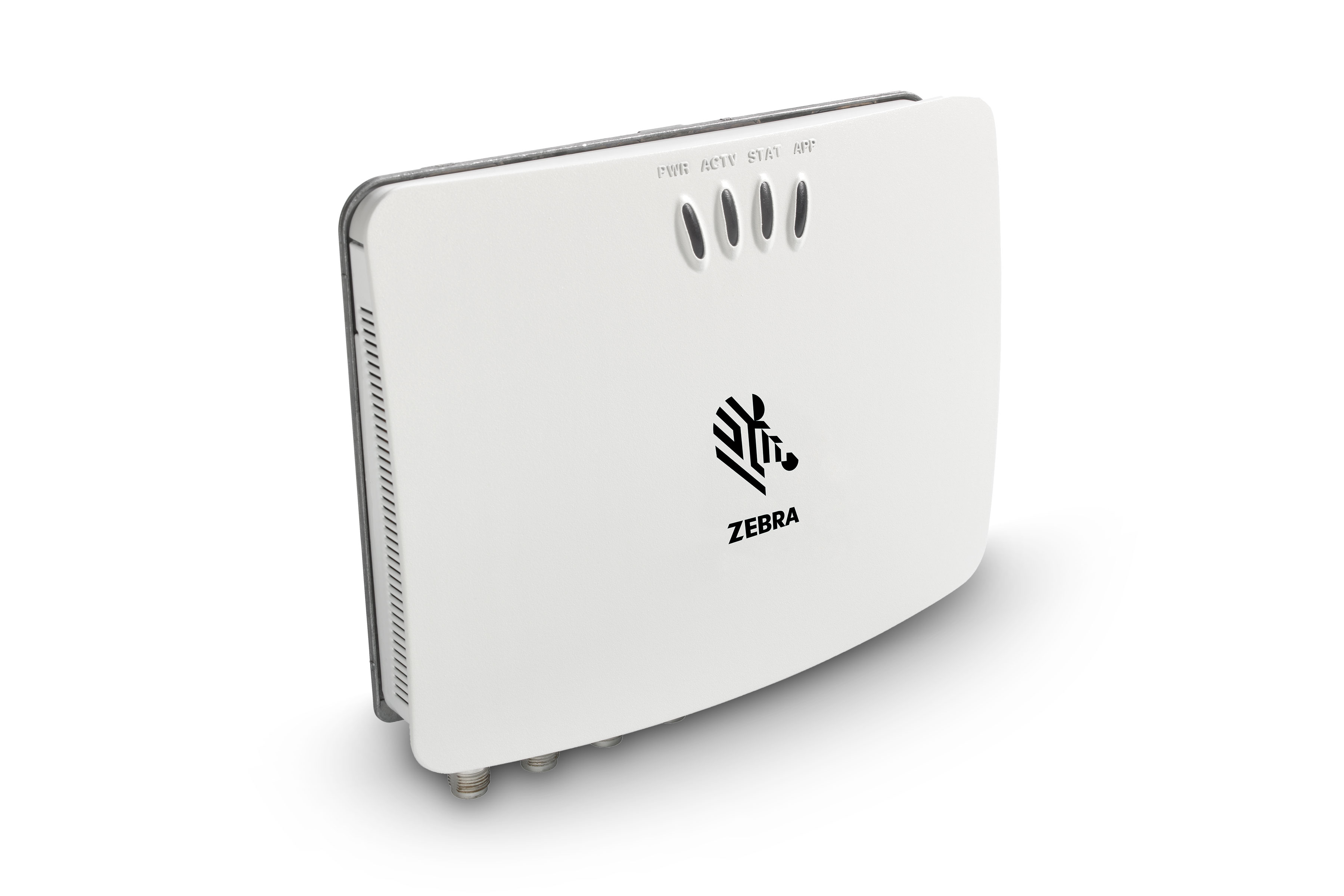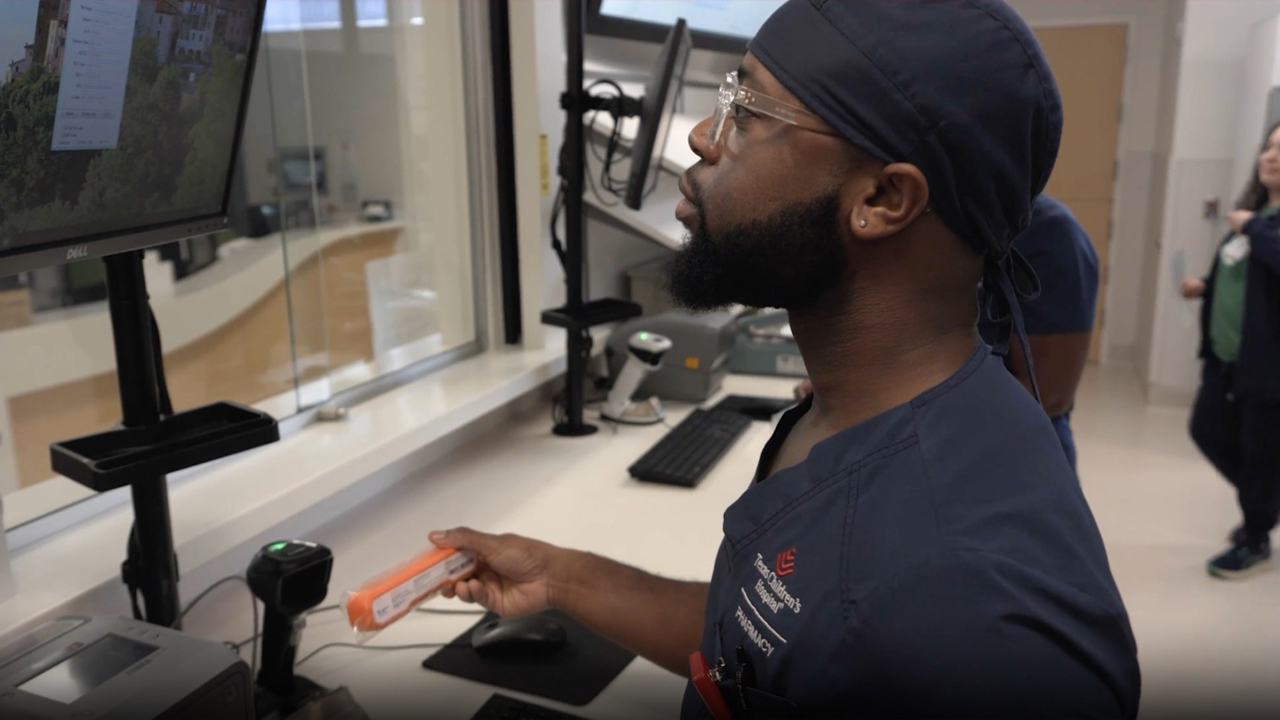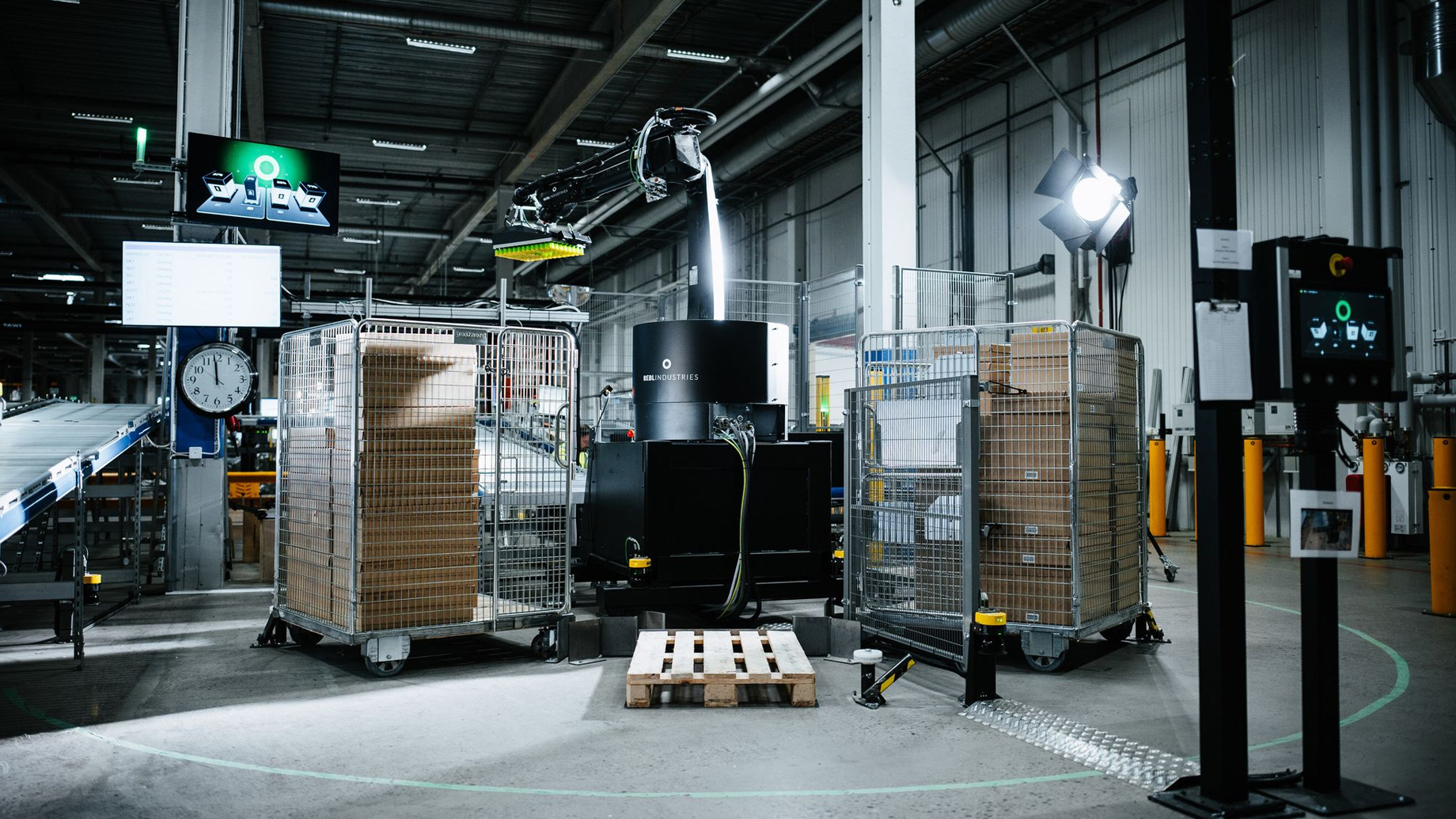Transform retail operations with Zebra’s retail technology solutions, featuring hardware and software for improving inventory management and empowering teams.
Streamline operations with Zebra’s healthcare technology solutions, featuring hardware and software to improve staff collaboration and optimise workflows.
Enhance processes with Zebra’s manufacturing technology solutions, featuring hardware and software for automation, data analysis, and factory connectivity.
Zebra’s transportation and logistics technology solutions feature hardware and software for enhancing route planning, visibility, and automating processes.
Zebra's public sector technology solutions enhance decision-making, streamline operations, and safeguard communities with advanced software and rugged hardware.
Zebra's hospitality technology solutions equip your hotel and restaurant staff to deliver superior customer and guest service through inventory tracking and more.
Zebra's market-leading solutions and products improve customer satisfaction with a lower cost per interaction by keeping service representatives connected with colleagues, customers, management and the tools they use to satisfy customers across the supply chain.
Empower your field workers with purpose-driven mobile technology solutions to help them capture and share critical data in any environment.
Zebra's range of mobile computers equip your workforce with the devices they need from handhelds and tablets to wearables and vehicle-mounted computers.
Zebra's desktop, mobile, industrial, and portable printers for barcode labels, receipts, RFID tags and cards give you smarter ways to track and manage assets.
Zebra's 1D and 2D corded and cordless barcode scanners anticipate any scanning challenge in a variety of environments, whether retail, healthcare, T&L or manufacturing.
Zebra's extensive range of RAIN RFID readers, antennas, and printers give you consistent and accurate tracking.
Choose Zebra's reliable barcode, RFID and card supplies carefully selected to ensure high performance, print quality, durability and readability.
Zebra's rugged tablets and 2-in-1 laptops are thin and lightweight, yet rugged to work wherever you do on familiar and easy-to-use Windows or Android OS.
With Zebra's family of fixed industrial scanners and machine vision technologies, you can tailor your solutions to your environment and applications.
Zebra’s line of kiosks can meet any self-service or digital signage need, from checking prices and stock on an in-aisle store kiosk to fully-featured kiosks that can be deployed on the wall, counter, desktop or floor in a retail store, hotel, airport check-in gate, physician’s office, local government office and more.
Adapt to market shifts, enhance worker productivity and secure long-term growth with AMRs. Deploy, redeploy and optimize autonomous mobile robots with ease.
Discover Zebra’s range of accessories from chargers, communication cables to cases to help you customise your mobile device for optimal efficiency.
Zebra's environmental sensors monitor temperature-sensitive products, offering data insights on environmental conditions across industry applications.
Zebra's location technologies provide real-time tracking for your organisation to better manage and optimise your critical assets and create more efficient workflows.
Enhance frontline operations with Zebra’s AI software solutions, which optimize workflows, streamline processes, and simplify tasks for improved business outcomes.
Empower your frontline with Zebra Companion AI, offering instant, tailored insights and support to streamline operations and enhance productivity.
Boost productivity with Zebra Frontline AI Enablers: AI vision models, sample apps, and APIs streamline workflows for efficient business processes.
Zebra Frontline AI Blueprints deliver adaptable, real-world AI frameworks that automate manual tasks and drive efficiency in high-pressure frontline operations.
Zebra Workcloud, enterprise software solutions boost efficiency, cut costs, improve inventory management, simplify communication and optimize resources.
Keep labour costs low, your talent happy and your organisation compliant. Create an agile operation that can navigate unexpected schedule changes and customer demand to drive sales, satisfy customers and improve your bottom line.
Drive successful enterprise collaboration with prioritized task notifications and improved communication capabilities for easier team collaboration.
Get full visibility of your inventory and automatically pinpoint leaks across all channels.
Reduce uncertainty when you anticipate market volatility. Predict, plan and stay agile to align inventory with shifting demand.
Drive down costs while driving up employee, security, and network performance with software designed to enhance Zebra's wireless infrastructure and mobile solutions.
Explore Zebra’s printer software to integrate, manage and monitor printers easily, maximising IT resources and minimising down time.
Make the most of every stage of your scanning journey from deployment to optimisation. Zebra's barcode scanner software lets you keep devices current and adapt them to your business needs for a stronger ROI across the full lifecycle.
RFID development, demonstration and production software and utilities help you build and manage your RFID deployments more efficiently.
RFID development, demonstration and production software and utilities help you build and manage your RFID deployments more efficiently.
Zebra DNA is the industry’s broadest suite of enterprise software that delivers an ideal experience for all during the entire lifetime of every Zebra device.
Advance your digital transformation and execute your strategic plans with the help of the right location and tracking technology.
Boost warehouse and manufacturing operations with Symmetry, an AMR software for fleet management of Autonomous Mobile Robots and streamlined automation workflows.
The Zebra Aurora suite of machine vision software enables users to solve their track-and-trace, vision inspection and industrial automation needs.
Zebra Aurora Focus brings a new level of simplicity to controlling enterprise-wide manufacturing and logistics automation solutions. With this powerful interface, it’s easy to set up, deploy and run Zebra’s Fixed Industrial Scanners and Machine Vision Smart Cameras, eliminating the need for different tools and reducing training and deployment time.
Aurora Imaging Library™, formerly Matrox Imaging Library, machine-vision software development kit (SDK) has a deep collection of tools for image capture, processing, analysis, annotation, display, and archiving. Code-level customisation starts here.
Aurora Design Assistant™, formerly Matrox Design Assistant, integrated development environment (IDE) is a flowchart-based platform for building machine vision applications, with templates to speed up development and bring solutions online quicker.
Designed for experienced programmers proficient in vision applications, Aurora Vision Library provides the same sophisticated functionality as our Aurora Vision Studio software but presented in programming language.
Aurora Vision Studio, an image processing software for machine & computer vision engineers, allows quick creation, integration & monitoring of powerful OEM vision applications.
Adding innovative tech is critical to your success, but it can be complex and disruptive. Professional Services help you accelerate adoption, and maximise productivity without affecting your workflows, business processes and finances.
Zebra's Managed Service delivers worry-free device management to ensure ultimate uptime for your Zebra Mobile Computers and Printers via dedicated experts.
Find ways you can contact Zebra Technologies’ Support, including Email and Chat, ask a technical question or initiate a Repair Request.
Zebra's Circular Economy Program helps you manage today’s challenges and plan for tomorrow with smart solutions that are good for your budget and the environment.

Redbite
As RFID technology has matured, more functions have been added. This has increased the complexity of deployments that were already challenging for many organisations, especially small and medium businesses. But RedBite Solutions felt it could change the dynamics of RFID to make it more affordable and easier to deploy and manage. It had the opportunity to test its hypothesis with a well-known hospital in Ireland using its itemit solution alongside Zebra RFID technologies.
Zebra Success Story: Redbite
Overview: Healthcare/Technology Challenge
Automate RFID tag scanning to track and trace the location of dialysis machines without human intervention.
Benefits / Outcomes
- Two weeks of clinician time saved each year
- Enhanced efficiencies – machines are always easily located and available for use
- Solution was up and running in weeks
- Cost-effective out-of-the-box solution with limited need for customisation
Customers
Redbite
Ireland
Industry
Healthcare/Technology
Solutions
About RedBite Solutions
RedBite Solutions has a strong heritage in RFID. Formed in 2006 as a spin-out from the University of Cambridge, RedBite’s founders were part of the Cambridge University Auto-ID Centre and helped establish GS1 EPC standards for RFID. The company has built the world’s biggest deployment of RFID across 60 countries and has customised solutions for Rolls-Royce, Boeing and Sony among others.
The Challenge
As RFID technology has matured, more functions have been added. This has increased the complexity of deployments that were already challenging for many organisations, especially small and medium enterprises.
For example, companies needed to build customised applications to deploy and monitor their RFID readers and transmit the asset data they collected. Furthermore, servers and middleware were needed locally to collect data from readers and share this across the corporate network. Consequently, every RFID solution needed to be custom-designed. It was not unusual for projects to take several years, and they often involved software specialists, systems integrators and hardware vendors. For these reasons, the technology became the preserve of large enterprises.
“Managing many different partners in an RFID deployment can be onerous,” says Dr Alex C. Y. Wong, CEO and a founder of RedBite. “But we felt we could change the dynamics of RFID to make it more affordable and easier to deploy and manage. We had the opportunity to test our hypothesis with a well-known hospital in Ireland.”
As we have shown with the deployment of an asset tracking solution in a hospital in Ireland that’s saving clinicians a huge amount of time, we can now build no code, or low code, plug and play RFID solutions. This makes the technology affordable and attractive to all organisations that want to track, trace and protect their assets.
Dr Alex C. Y. Wong, CEO
The Solution
Prior to its discussions with the hospital, RedBite had identified that most enterprises want to do common things with RFID, such as understanding what assets they have and where, who has them, what condition they are in and what’s available to use. With this in mind, it built a cloud-based application, ‘itemit’, with simplified RFID features, removing some of the complex functionality that is not needed by most customers.
Ready out of the box, itemit was a cost-effective solution for the hospital, as it primarily wanted to track the location of its dialysis machines. It had already installed RFID tags, as these could be read over long distances using handheld readers, without having to disturb patients.
However, capturing data from all the tags took 50 minutes. And, to ensure the data was timely, it needed to be collected several times a day. What’s more, during evenings and weekends when there may not have been enough staff free to run the checks, this could lead to machines being misplaced.
To overcome these inefficiencies, the hospital opted to install Zebra FX7500 Fixed RFID Readers. With the help of RedBite, the readers were connected to itemit using Zebra Data Services™.
Zebra Data Services removes the need to write bespoke applications for RFID readers or install servers and middleware to connect them to the host management platform. It offers a range of REST Application Programming Interfaces (APIs) that connect to Zebra Savanna™ – an intelligent data platform that collects and aggregates data from Zebra’s devices. Using the APIs, Zebra Savanna integrates with itemit across the internet. In addition, the RFID readers can be managed and controlled using a REST API interface via the cloud.
Charlotte Ellarby, Associate Director of RedBite and Co-Founder of itemit, says: “With Zebra Data Services, installing fixed RFID readers and controlling these from itemit is similar to, if not easier than, creating a Wi-Fi network. Essentially the solution turns readers into Internet of Things (IoT) devices. With zero coding needed to connect the readers, we finished the installation in a couple of weeks, with asset data connected into itemit. Previously this would have taken months.”
The Zebra Difference: Outcome and Benefits
Through RedBite Solution’s itemit asset tracking software system, IT teams can easily install and configure their Zebra fixed radio frequency identification (RFID) readers and assign them to a location. The RFID tag data from the hospital’s 70 dialysis machines is read continuously, with no human intervention, and is sent via Zebra Savanna™ directly to itemit. itemit offers a comprehensive range of other capabilities too – from managing asset maintenance, to booking equipment in and out, and many more. Also, IT teams can monitor and manage their RFID readers remotely from within the itemit application, with a rich range of configurable asset reports available.
Results are impressive: staff are saving around two weeks a year in time. And, with plans to expand the rollout to cover 3,000 assets across the hospital, further time savings are expected to be exponential.
Mark Jolley, RFID Sales Director at Zebra, says: “We see this low, or no code, deployment scenario using Zebra Data Services as a game-changer. It hugely reduces the cost and complexity of RFID projects. Whatever business you’re in, from tracking and tracing farm animals, to monitoring equipment on construction sites, or keeping an eye on medical or lab equipment, to knowing where your laptops are, it’s now easier to use RFID to protect your people and assets, reduce your costs and work more effectively
Featured Products and Solutions
Related Resources
Legal Terms of Use Privacy Policy Supply Chain Transparency
ZEBRA and the stylized Zebra head are trademarks of Zebra Technologies Corp., registered in many jurisdictions worldwide. All other trademarks are the property of their respective owners. Note: Some content or images on zebra.com may have been generated in whole or in part by AI. ©2026 Zebra Technologies Corp. and/or its affiliates.





